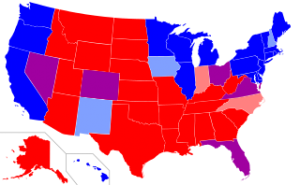Conference Probes the Depth and Breadth of Political Polarization
“I believe in my heart that we have a lot more in common than we have differences,” said Tom Meaux, Ozaukee County Administrator.
But if you do the numbers, we have a dramatic amount not in common. And no one has done the numbers the way the Marquette Law School and the Milwaukee Journal Sentinel have.
The numbers – voting data, polling results, a wide range of demographic statistics – spell out the polarization that has become a dominant fact of politics in Wisconsin and especially in southeastern Wisconsin. A six-month fellowship at the Law School, funded by the Lubar Fund for Public Policy Research, allowed Craig Gilbert, Washington bureau chief of the Milwaukee Journal Sentinel, to collaborate with Professor Charles Franklin, director of the Marquette Law School Poll, in producing an analysis of the growing political divide that offers remarkable depth and breadth.
The result was a four-part series in the Journal Sentinel and a conference Thursday at Eckstein Hall, sponsored by the Law School and the Journal Sentinel, that brought together Gilbert, Franklin, political leaders, and academic experts to discuss what unites us, what divides us, and what lies ahead, given the intense current divisions.

